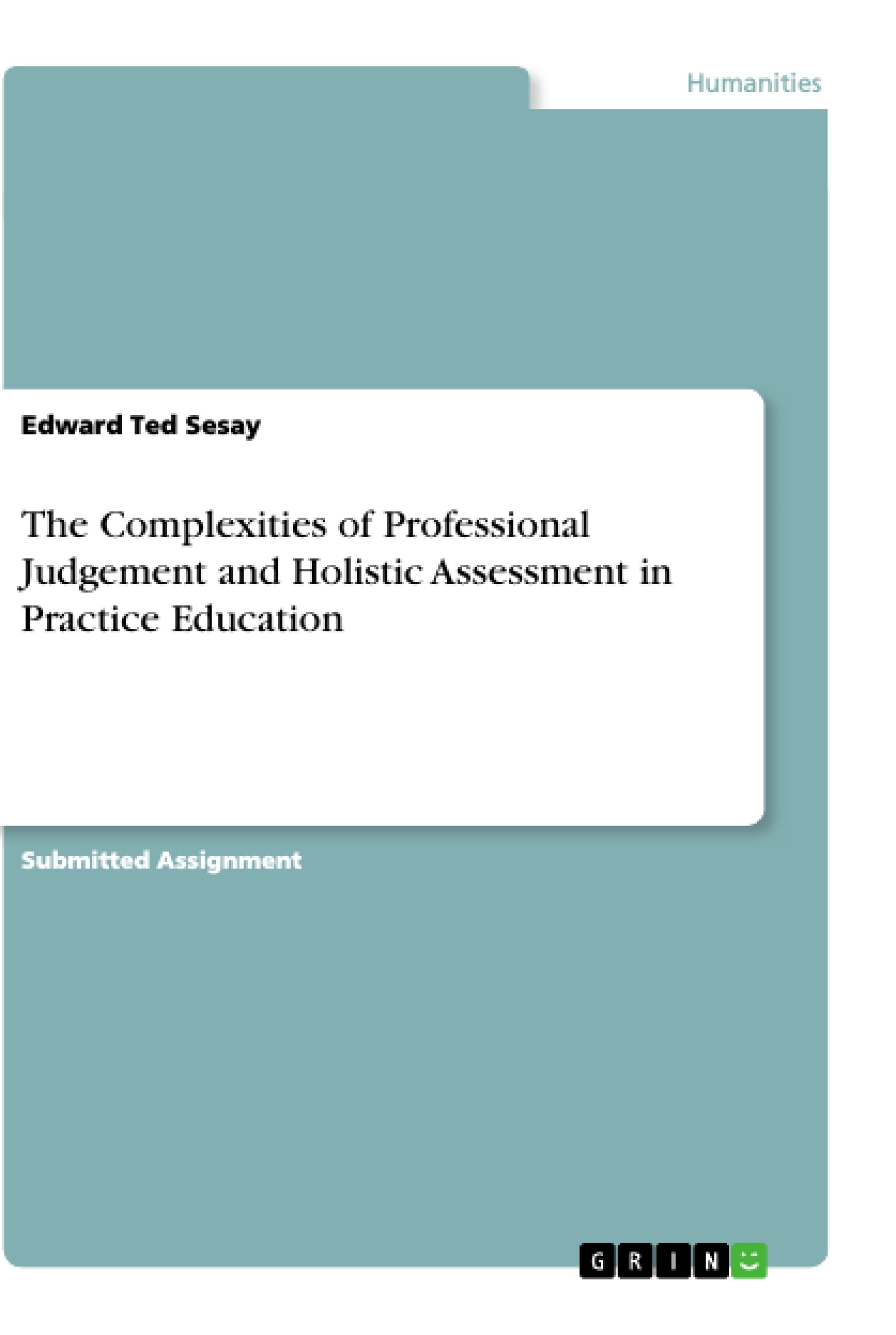A statement jointly developed by Skills for Care, the Higher Education Academy and the Department for Education explains that holistic assessment is used in situations where learning or performance objectives are inter-twined and complex and where established standards are used to measure such learning or performance. In Social Work, these standards are set at different levels of practitioners’ careers through the Professional Capabilities Framework ( PCF ). An inter-relationship of knowledge, skills and values stands out in Social Work practice and the expectation is that Social Work students make significant progress in these domains during their training. Instead of just a snapshot of ability at a point in time, holistic assessment should capture the progressive development of the learner/practitioner over a considerable period of time.
Inhaltsverzeichnis (Table of Contents)
- Holistic Assessment in Practice Education
- Professional Judgement
- Holistic Assessment in Practice
- Assessing the Student
- Holistic Assessment: A Process
- Assessing Capability
Zielsetzung und Themenschwerpunkte (Objectives and Key Themes)
This text critically examines the complexities of professional judgment and holistic assessment in practice education, particularly within the context of Social Work. It explores the role of holistic assessment in capturing the progressive development of learners, the importance of professional judgment in navigating complex situations, and the need to consider both competence and capability in the assessment process.
- The nature of holistic assessment in Social Work practice education
- The significance of professional judgment in making informed decisions
- The role of capability, beyond competence, in assessing student performance
- The integration of various assessment methods, including observation, testimonial evidence, and product evidence
- The importance of a collaborative partnership between students, practice educators, and service users in the assessment process
Zusammenfassung der Kapitel (Chapter Summaries)
- Holistic Assessment in Practice Education: This chapter introduces the concept of holistic assessment in practice education, highlighting its importance in capturing the multifaceted nature of learning and performance in Social Work. It emphasizes the use of established standards, such as the Professional Capabilities Framework (PCF), to measure the development of knowledge, skills, and values.
- Professional Judgement: This chapter delves into the significance of professional judgment in holistic assessment, emphasizing the need for sound and robust decision-making in complex situations. It explores the various contexts in which professional judgment is applied in Social Work practice, ranging from making major decisions to navigating everyday challenges.
- Holistic Assessment in Practice: This chapter provides practical guidance on implementing holistic assessment in practice learning situations. It outlines the key principles of fair and reliable assessment, including clear communication of assessment criteria and methods. The chapter also highlights the importance of involving students in the planning process and utilizing a range of assessment methods to gather diverse evidence.
- Assessing the Student: This chapter focuses on the role of the practice educator in assessing student performance. It highlights the importance of observation as a key assessment method, emphasizing its benefits for students, practice educators, and service users. The chapter also emphasizes the need for holistic assessment that extends beyond superficial observation, exploring the student's underlying capabilities and reasoning.
- Holistic Assessment: A Process: This chapter examines the assessment process as a collaborative endeavor involving students, practice educators, and service users. It underscores the value of ongoing formative assessment throughout the placement duration and the importance of considering both formative and summative assessments in forming a holistic view of the student's progress.
Schlüsselwörter (Keywords)
This text primarily focuses on the concepts of professional judgment, holistic assessment, capability, competence, practice education, Social Work, Professional Capabilities Framework (PCF), and various assessment methods such as observation, testimonial evidence, and product evidence.
- Citation du texte
- Edward Ted Sesay (Auteur), 2019, The Complexities of Professional Judgement and Holistic Assessment in Practice Education, Munich, GRIN Verlag, https://www.grin.com/document/536430



